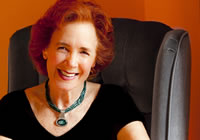Who Is Our God?
Is Your Thinking Correct?
Who do we believe? What do we believe? We say that we believe in God, but who is the God we believe in? Sometimes we can be deceived in bringing God, the awesome God of the universe, to our level of thinking. We conjure up who we think God is, relate to Him in this way and live our lives accordingly. How we must guard ourselves from this deception.
Psalm 113 asks the question, “Who is like the Lord our God?” We would think that the proceeding verses would tell us about our mighty awesome God, the One who created the worlds, the One who brought the children of Israel through the Red Sea on dry land, or the One who caused the sun to stand still for a day at the command of Joshua. Many today would say that He is the God who causes us to prosper and to have all that we want if only we believe.
But what does the Scripture say? This psalm surprises us with the answer. It tells us that He is the one who raises the poor out of the dust and lifts the needy out of the rubbish heap! He is the one who gives the barren woman a home and makes her a joyful mother of children!
Isn’t that amazing? God aligns himself with the poor and those who have a humble spirit. He is interested in mothers and children. If we want to know what our God is like we find that He is a God who loves children. The Old Testament alien gods hated children. They demanded the sacrifice of children. The same false gods are operating today through the vehicles of abortion and contraception.
Satan hates children. He comes to rob, kill and destroy. But the God of the Bible loves children. It is His greatest blessing to His created beings. After God created Adam and Eve, the first thing He did was to bless them. What was the blessing? The blessing of conception and fruitfulness—“Be fruitful, multiply and replenish the earth.”
He gave them more than that. He gave them the blessing of taking dominion over the earth, but the first blessing was the blessing of children. We see the same truth in the blessing and cursing chapter of Deuteronomy 28. God pours out His blessings upon those who obey His commandments—the blessings of overflowing prosperity. But once again, we notice that this first blessing is the fruit of the womb! After that God pours out the other blessings—productive fields and fertile flocks, baskets overflowing with fruit and vegetables, kneading bowls filled with bread, storehouses filled with grain, abundance of all good things and the power to conquer enemies. All these blessings come after the blessing of the fruit of the womb. They are for the purpose of providing for the fruit of the womb.
There are many who want blessing and prosperity, but without the fruit of the womb. They want bigger houses and bigger cars, but few children. This doesn’t line up with the Bible. Nor does it reveal the character of our God. Big houses are for many children. Big cars are for lots of children.
Our God is a God of life. He is the author of life. One of the most touching Scriptures in the Bible is in 2 Samuel 12:24 telling of the birth of Solomon. After he was born, it says, “And the LORD loved him.” God loves babies. He loves giving mothers babies. He loves to see them grow into godly men and women who will reveal His image in the earth. This is His greatest blessing. He wants the world to be filled with His glory, the glory of the godly seed blessing the earth.
Who is our God like? We find that He loves children. He loves the poor, the widows and the orphans. In fact, this Psalm says that He seats the poor with princes. The word princes in this passage does not mean nadiv, which means ‘willing, generous, and liberal.’ In other words, God says that He seats them with the generous of the land, those who willingly open their hearts and homes to the needy, the poor, the orphans and the widows in their distress. It is these generous open-hearted people who are the real princes in the land. They are the ones who show who God is like to the world. ‘sheik, king or chief’ but it is the Hebrew word
May we know who our God is and live like He is in this world.
NANCY CAMPBELL

